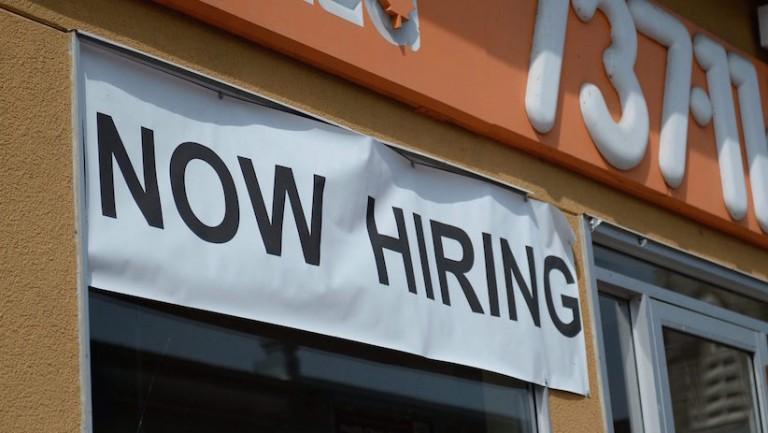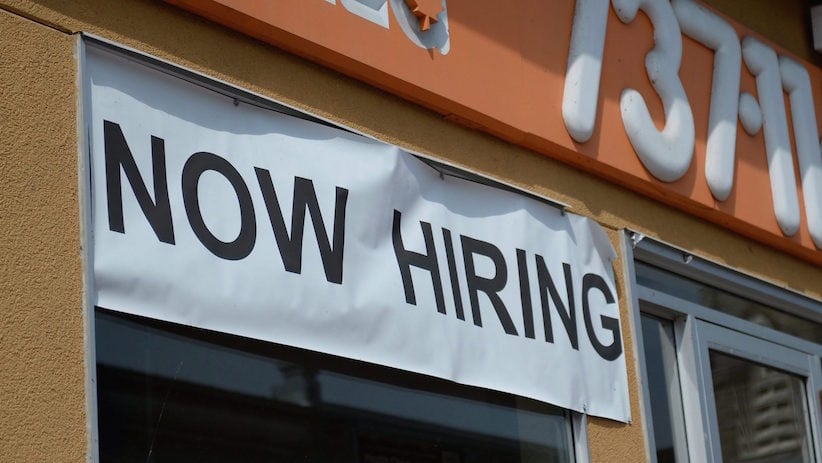In the Millennial job market, a Bachelor’s degree isn’t enough
As bachelor’s degrees have become more commonplace, they’ve also decreased in value in the job market

THE CANADIAN PRESS/Sean Kilpatrick
Share

This article originally appeared at Flare.
Despite the fact that millennials—and now Gen Z—are the generation of the side hustle (because most of us need to work three jobs at a time to survive), the myth of laziness persists. Millennials are forever being told that they’re unemployed because either they don’t work hard enough or they’re too entitled. But a new study has finally debunked that tired stereotype.
For a recent report published last week, the Conference Board of Canada reviewed salaries and hourly wages for new graduates and student-level employees. They also explored key considerations of organizations looking to hire new grads with “top talent.”
The results could lead you to draw a bunch of different conclusions about your future standing in the workforce.
For example, we know bachelor’s degrees have become more commonplace—and this study builds a strong case to suggest that they’ve also decreased in value. According to the CBoC’s findings, going back to school after your undergrad could give you a more competitive edge. They found that candidates with additional education or specialized training are generally favoured by Canadian companies, and that often translates to higher starting salaries than their less-decorated peers.
And the numbers don’t lie.
The average annual starting salary for a new-graduate employee with a bachelor’s degree hovers around $54,295. Compare that to a master’s degree, though, where the average annual starting salary climbs to $60,979. Meanwhile, a college diploma nets an average of $45,434.
“Many young Canadians are experiencing difficulties integrating into the workforce or are underemployed in the current job market,” said Allison Cowan, director of the Compensation Research Centre at The Conference Board of Canada, in a recent interview.
“Despite these difficulties, many organizations are actively seeking highly educated millennials and are increasingly willing to pay a premium for new graduates to mine their specialized skill sets in areas such as technology and engineering,” she continued.
At a time when about one in five young Canadians are underemployed or working in precarious part-time jobs, it’s easy to think that the more education you have, the better. But that’s not always the case. Clearly, employers are looking for people with specialized training (like geology, which has an average starting salary of $69,736) and backgrounds in engineering (which start out around $65,183). But, somewhat confusingly, the study also revealed that new-graduate employees with PhDs actually earned slightly less than those with master’s degrees, averaging $59,639 as a starting annual salary.
So what does all this mean? Like I said, it’s hard to draw an immediate conclusion.
It doesn’t help that tuition prices are higher than ever in Canada. The idea of going back to school to make yourself more marketable is easier said than bankrolled.
The report also revealed stats about hiring students for temporary positions. More than a quarter of organizations surveyed said that they bridge interns, co-op students, and summer students into full-time positions, making these internships highly covetable. Pay for these positions varies based on level of education: high school co-op students make an average of $16.41 an hour, while those enrolled in a master’s program make an average of $23.33 hourly.
However in provinces like Ontario, legislation allows companies to pay interns with college credit instead of cash. As a result, many new grads still find themselves side-hustling to pay rent, hoping that they’ll be part of the 25 percent that lands a full-time gig post-internship.
No wonder millennials get testy when told they aren’t working hard enough.